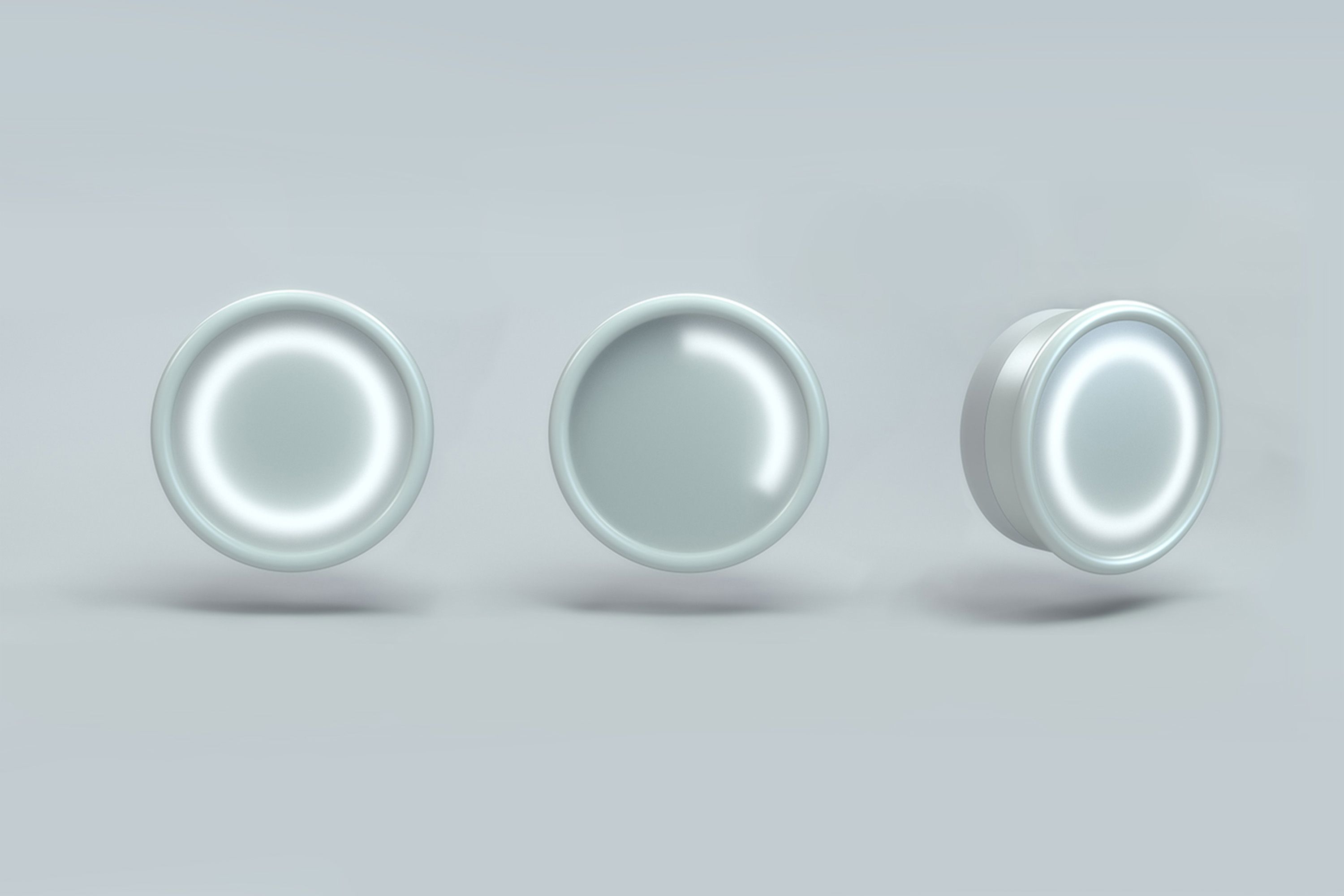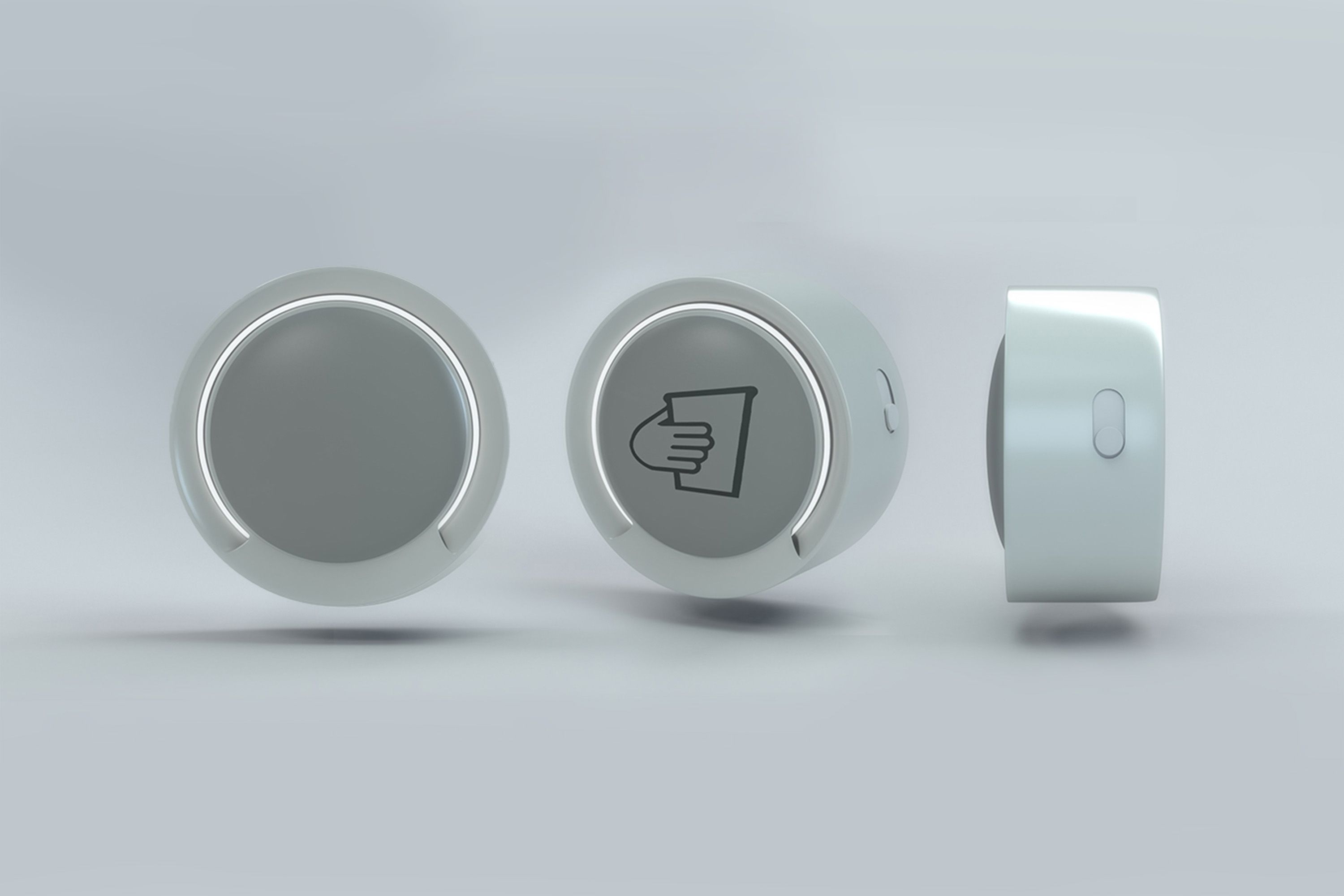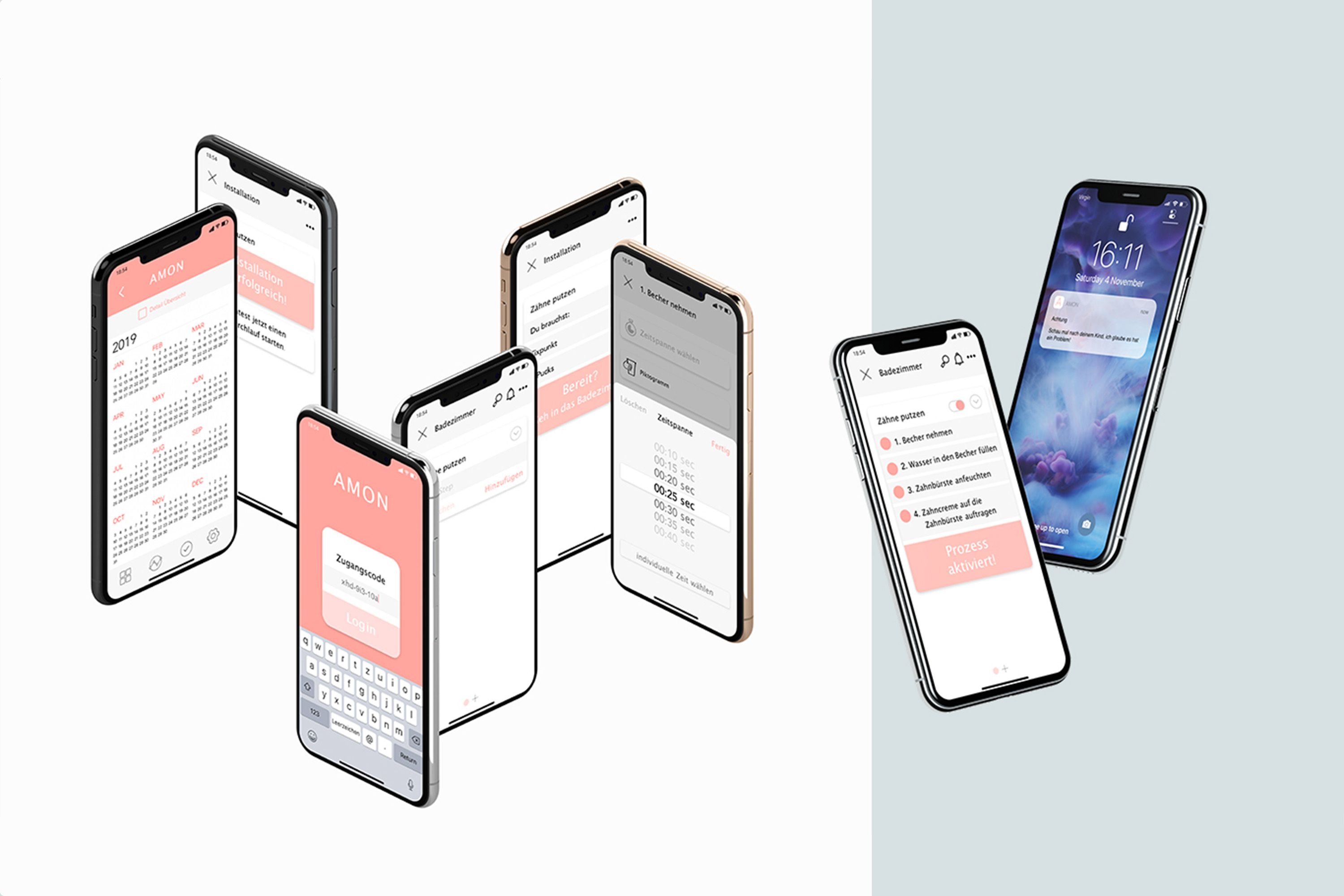
Designers
Lisa-Marie Rosendorff, Marie A. C. Steinbrügge
Year
2021
Category
New Talent
Country
Germany
School
Hochschule Darmstadt, University of Applied Sciences
Teacher
Prof. Claudius Coenen, Prof. Andrea Krajewski, Christoph Diederichs

Three questions to the team
What was the particular challenge in the project from a UX point of view?
We developed the motto: "When does interactive media really help autistic people meet their needs? And when do they only help to disguise the need of neurotypicals (non-autistic people) for autistic people to adapt?" This maxim set a high expectation and challenged us to design a system according to it. Moreover, autistic children have an individual way of processing sensory impressions and in education, emotional stimuli cannot be used. A learning concept must offer regulated procedures and flexibility in the design of the learning situation, as well as guarantee a gradual detachment of the parents from the learning process.
What was your personal highlight in the development process? Was there an aha! moment, was there a low point?
The highlights of the project were the meetings with autistic individuals, which were enriching both humanly and professionally. Outstanding was the visit to Autismus Rhein-Main e.V., where the special needs and requirements of the target group were internalized. Relatives underlined the desire for interactive products, so that it became clear: More attention must be paid to this topic. A kind of low point occurred within the development when the process of brushing teeth was examined. The fact that a seemingly simple process can be carried out in so many ways showed once again how individually this project must be treated.
Where do you see yourself and the project in the next five years?
The vision for AMON is to use the concept in other learning processes. In this way, it is part of the life of an autistic child until it withdraws and the child can master everyday life independently. It is also conceivable to expand AMON in the future for Alzheimer's patients. The approach would no longer be to provide guidance in learning processes, but to offer a reminder support in everyday life without a controlling authority in the background. Preserving a bit of independence for people with dementia is a positive field of application that AMON can open up.

